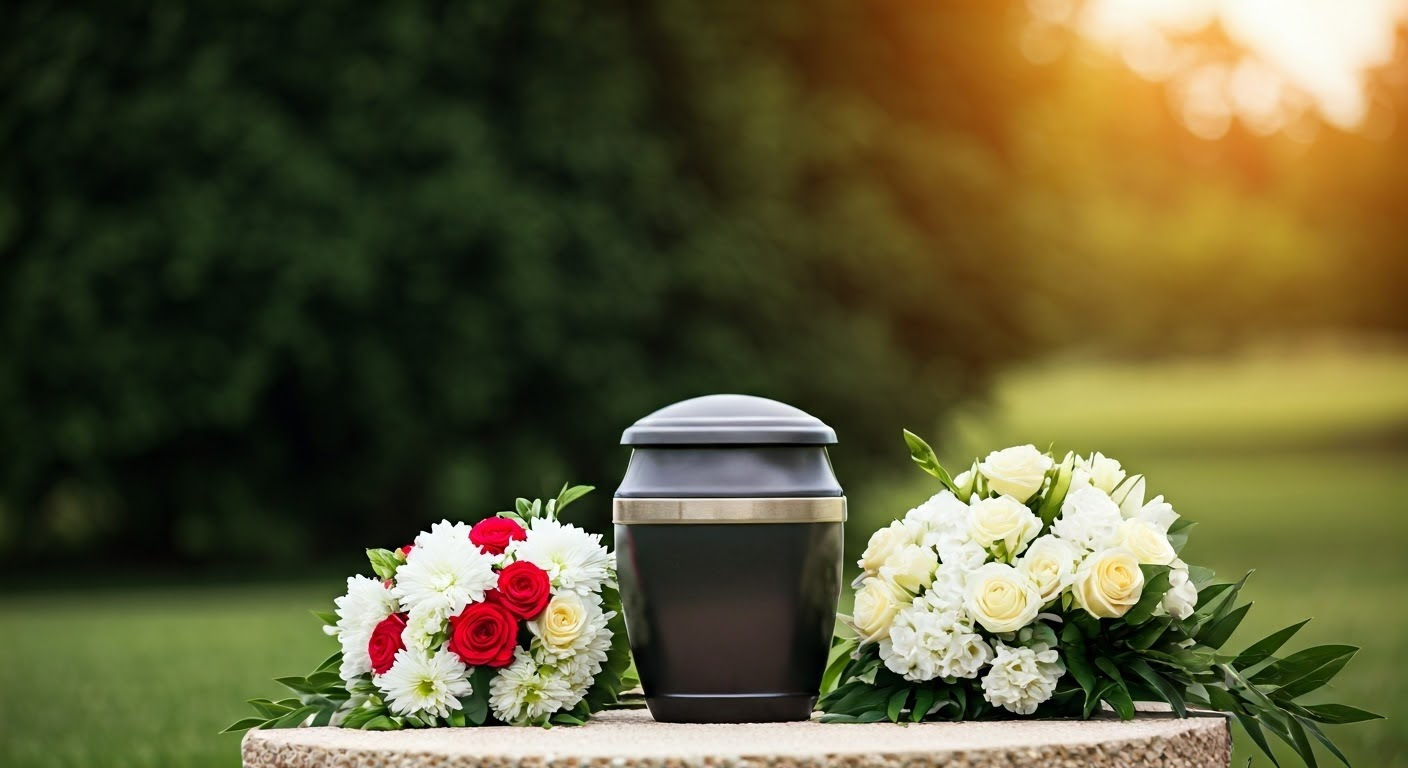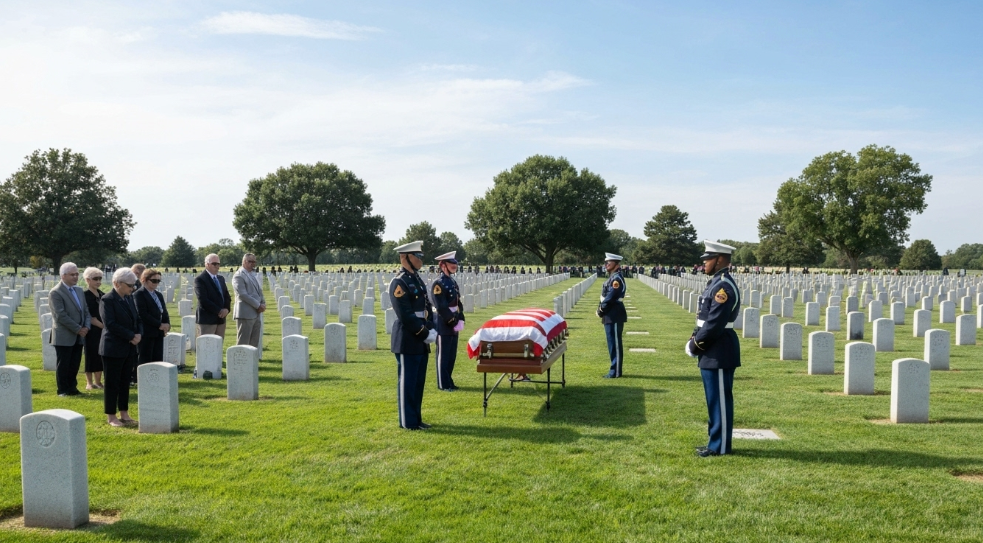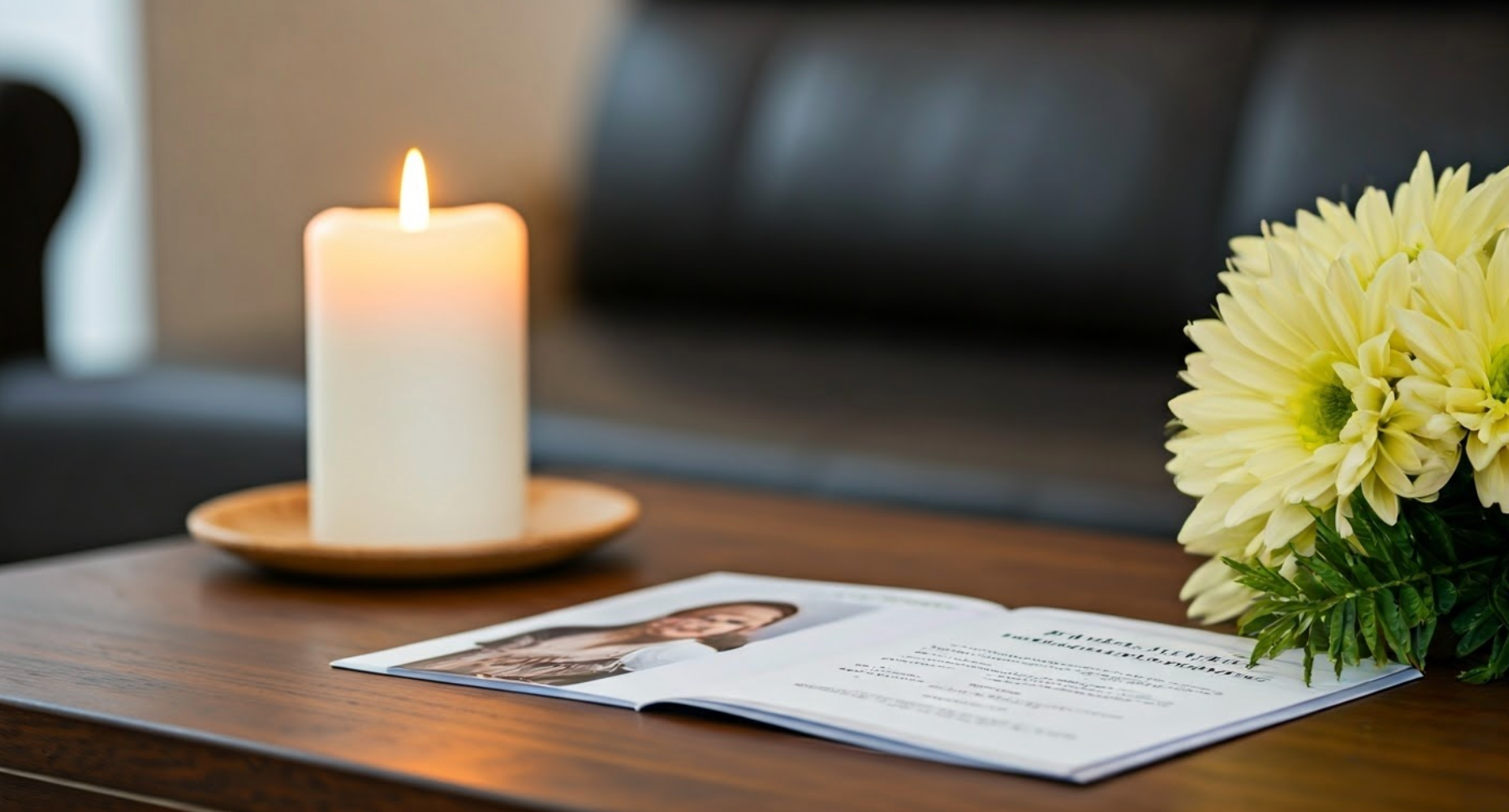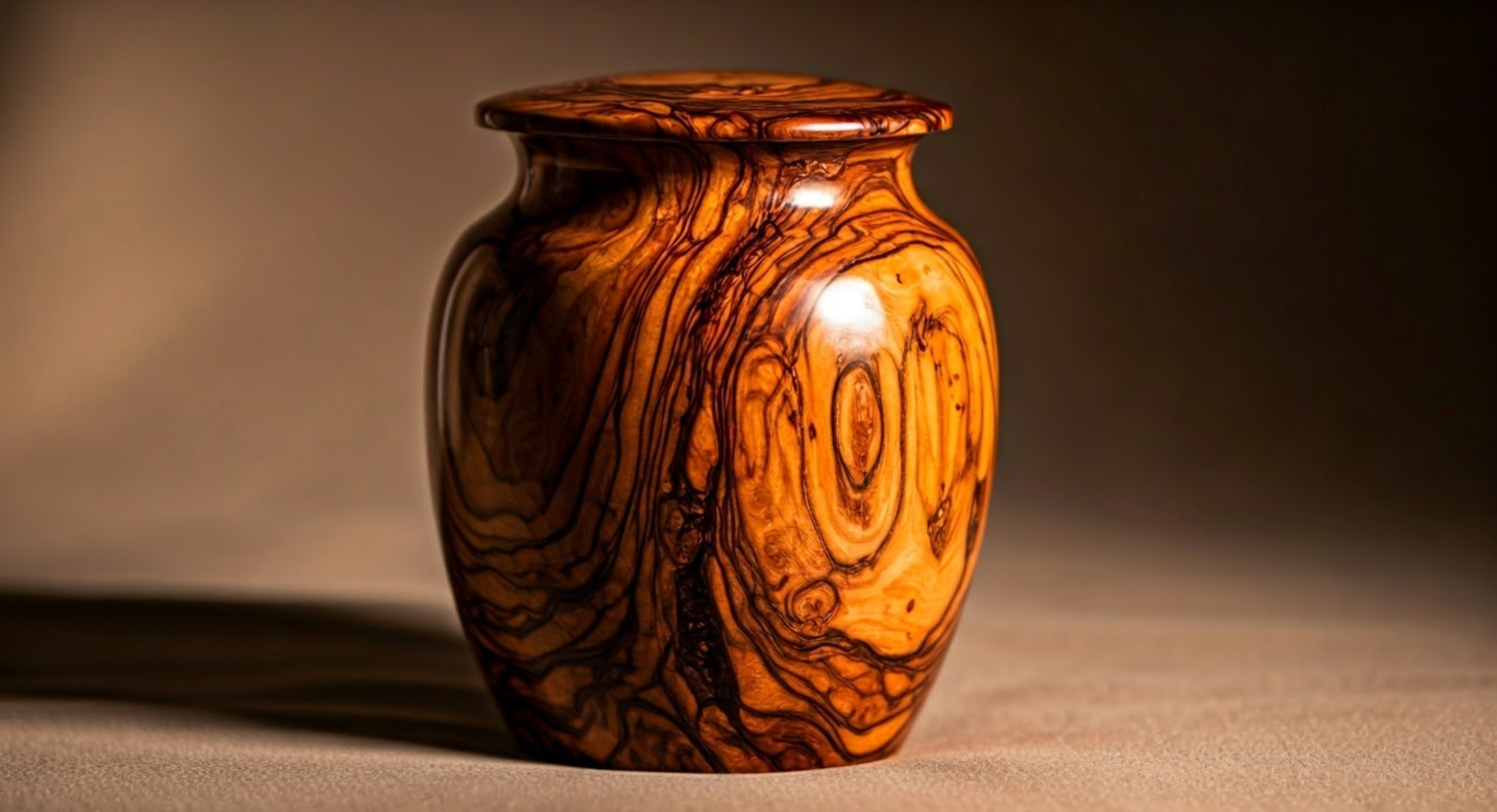Crafting a Thoughtful Eulogy for Your Grandfather
This is a subtitle for your new post
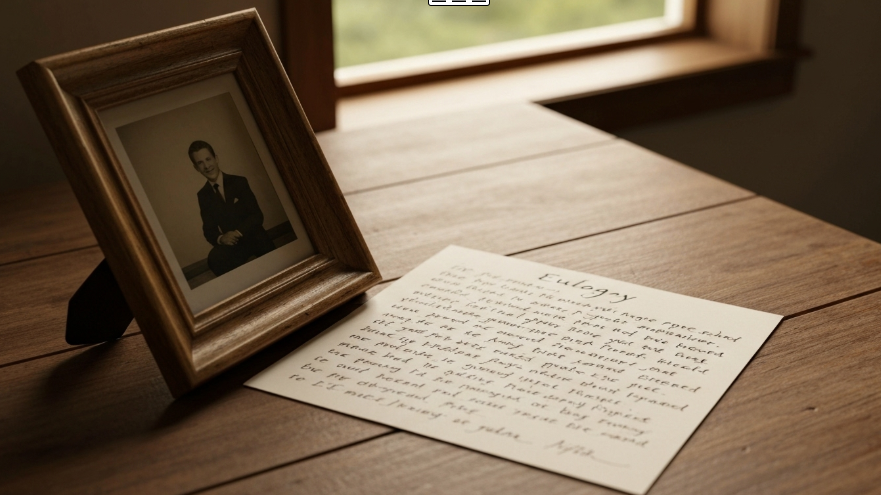
Crafting a Thoughtful Eulogy for Your Grandfather
Writing a heartfelt eulogy for your grandfather is a beautiful way to honor his memory. This guide offers key points to help you craft a meaningful tribute.
- Start by gathering your fondest memories and personal anecdotes.
- Speak with family members to collect their favorite stories.
- Structure your speech with a clear introduction, body, and conclusion.
- Choose a tone that balances emotion with moments of lightheartedness.
- Incorporate memorable quotes or personal details that capture his spirit.
- Practice your delivery to manage emotions and speak with confidence.
Introduction
Losing a grandparent is a deeply personal experience, and the task of writing a eulogy can feel overwhelming. How do you summarize a lifetime of love and memories in just a few minutes? This guide is here to walk you through crafting a tribute that honors your grandfather’s life and legacy. It's an opportunity to celebrate his memory, provide comfort to the entire family, and share the unique qualities that made him so special to everyone he knew.
Understanding the Purpose of a Grandfather’s Eulogy
Before you begin writing, it's helpful to understand the core purpose of a eulogy. It's more than just a speech; it’s a tribute given in memory of someone who has passed away. Its goal is to celebrate their life, honor their memory, and offer comfort to grieving family and friends.
A well-crafted eulogy serves as a fitting tribute by reflecting on the person's life, achievements, and values. It highlights the importance of family and connection, reminding everyone of the love and joy your grandfather brought into the world.
Honoring His Life and Legacy
When writing a eulogy for your grandpa, a great place to start is by reflecting on his life. Think about the key moments, from his early years and education to his career and family life. Were there specific hobbies, interests, or achievements that were especially important to him? Including these details helps paint a vivid picture of your grandfather’s life for everyone listening.
The tone you choose should feel authentic to you and your relationship with him. It's perfectly okay to balance sadness with warmth and even gentle humor if that reflects his personality. The goal is to convey the life lessons he taught and the values he held dear, such as kindness or the value of hard work.
Focusing on these aspects ensures you create a lasting impression that truly honors the man he was. It’s about sharing the story of his life in a way that feels genuine and respectful, celebrating the unique person he was.
Providing Comfort and Connection for Family
A eulogy is not just for the person who has passed; it is also a source of comfort for the living. Your words can offer solace to family members who are navigating their grief. By sharing stories and reflections, you create a shared space for remembrance and connection.
Your tribute can acknowledge the pain of the loss while also offering hope and reassurance. Meaningful memories, like a funny story from a family vacation or a quiet moment of advice he gave you, can bring a sense of warmth to the service. These personal touches remind everyone of the joy and love he brought into their lives.
Ultimately, your speech helps remind the audience that his memory will continue to live on through all of you. It's a powerful way to unite the family in a moment of shared love and remembrance for a great man.
Gathering Inspiration and Memories
Once you understand the purpose of your eulogy, the next step is to gather the building blocks: your memories and stories. This is where you’ll find the heart of your speech. Start by collecting your personal memories and fondest memories of your grandpa.
Think about the times you spent together and the personal stories that stand out. These details will give your tribute a warm and authentic feel, offering a glimpse into his personality and the special bond you shared.
Meaningful Stories to Remember
Sharing personal stories is one of the most powerful parts of a eulogy. These anecdotes offer a window into your grandpa's personality and highlight what made him unique. Think about your favorite stories that illustrate his best qualities. Was he known for his kindness, his sense of humor, or his unwavering generosity?
These personal details bring his memory to life for the audience. You can include stories about how he impacted your life or the lives of others, making his legacy feel tangible and real. Don't be afraid to share small, specific moments, as they often have the biggest impact.
Consider including anecdotes that showcase:
- His unique sense of humor or a funny quirk he had.
- A time he showed exceptional kindness or generosity.
- A lesson he taught you that has stuck with you.
- A favorite hobby or passion, like his love for woodworking or gardening.
- His dedication to his family or community.
Involving Family and Friends in Reminiscence
You don't have to gather memories alone. One of the best resources for inspiration is your other family members. Reach out to your parents, aunts, uncles, and cousins to hear their stories about your grandpa. You might discover new anecdotes or perspectives you hadn't considered.
Ask them about their fondest memories or the qualities they admired most in him. These conversations can enrich your eulogy and make it a tribute that resonates with the whole family. It ensures the speech feels like a collective celebration of his life.
These shared personal reflections can also provide inspiration if you're looking for examples of how to honor him. Hearing how he touched the lives of others can give you a deeper understanding of his legacy and help you find the right words for your own tribute.
What You’ll Need to Get Started
With a collection of stories and ideas, it's time to prepare for the writing process. Getting started involves two key components: gathering essential information and preparing yourself for the emotional aspect of the task.
Having your personal memories and key details organized will make writing much smoother. At the same time, acknowledging that this can trigger strong emotions is important for maintaining a clear mindset. Let's look at what you'll need to begin.
Essential Information and Keepsakes
To begin, gather all the essential information and personal details you've collected. This includes key life events, achievements, and the stories shared by family. Having these facts on hand provides a solid foundation for your eulogy and ensures accuracy.
Looking through old photos, letters, or other keepsakes can also be incredibly helpful. These items can jog your memory and bring forth vivid memories you may have forgotten. A specific photograph might remind you of a special day, or a handwritten note could capture his personality perfectly.
Think of these materials as the raw ingredients for your speech. While you don't need a rigid template, having these details organized will help you structure your thoughts and create a tribute that is both comprehensive and deeply personal.
Emotional Preparation and Mindset
Writing a eulogy is an emotional journey. It's completely normal to experience strong emotions as you reflect on your grandpa's life and your relationship with him. Give yourself permission to feel these emotions without judgment.
Approaching this task with the right mindset is key. See it not as a burden, but as a final gift of love and a wonderful way to honor his memory. Allow yourself to be creative and speak from the heart, as authenticity is what will make your tribute resonate.
If you find yourself getting emotional, take breaks. Step away from the writing for a bit and come back when you feel ready. Remember, these feelings are a testament to the love you shared, and channeling them into your words can make your eulogy even more powerful.
Step-by-Step Guide to Writing a Thoughtful Eulogy
Now that you've gathered your memories and prepared yourself emotionally, let's walk through the writing process. Creating a heartfelt eulogy is a matter of organizing your thoughts into a clear and touching narrative. A structured approach can make this feel less daunting.
Following a few simple steps will help you write a good eulogy that flows well and effectively communicates your feelings. From reflecting on his character to structuring your speech, this guide will help you craft a perfect eulogy.
Step 1: Reflect on Your Grandfather’s Character and Values
The first step in writing is to reflect on who your grandfather was at his core. What were the defining traits of his character? Think about the values he lived by, such as the value of hard work, honesty, or dedication to his family. These qualities are the essence of his legacy.
Use personal anecdotes to illustrate these traits. For example, instead of just saying he was kind, share a story that shows his kindness in action. Did he go out of his way to help a neighbor? Did he always have a gentle word for everyone he met? These specific examples bring his character to life.
Consider the life lessons he taught you, either through his words or his actions. Highlighting his generosity, wisdom, or humor will help the audience connect with the man you knew and loved, making your tribute a powerful testament to his spirit.
Step 2: Choose the Right Tone and Length
Next, consider the tone and length of your eulogy. The tone should feel appropriate for the occasion but also true to your grandfather's personality. If he had a great sense of humor, it's a good idea to include a lighthearted story or two. The goal is to find a balance between honoring the sadness of the moment and celebrating his life with warmth.
As a general rule, a eulogy should be between three to five minutes long, which is about 1,000 words. This is long enough to share meaningful stories without overwhelming the audience. Time yourself reading it aloud to ensure it fits within a reasonable timeframe.
Start with a brief introduction to set the stage and create a strong opening that captures the audience's attention. From there, let the tone reflect the stories you tell, creating a speech that is both engaging and heartfelt.
Step 3: Structure Your Eulogy with Introduction, Body, and Closing
Organizing your thoughts into a clear structure will make your eulogy easy for the audience to follow. A simple introduction, body, and closing framework works perfectly. This gives you a clear idea of where to place your stories and reflections.
Your introduction should have a strong opening that states your relationship to your grandfather and sets the tone. The body is where you'll share your personal stories, anecdotes, and reflections on his character and legacy. Finally, the closing should offer a heartfelt message of remembrance and comfort.
Many eulogy examples follow this structure, as it provides a natural flow. Here’s a simple template:
Section
Purpose
Introduction
Greet the attendees, introduce yourself, and share your relationship to your grandfather.
Body
Share 2-3 personal stories, highlight his key qualities, and mention his impact on others.
Closing
Summarize his legacy, offer a final message to him, and thank the audience.
Step 4: Add Personal Touches—Quotes, Humor, or Special Moments
To make your eulogy truly memorable, add personal touches that capture your grandfather's unique spirit. These details transform a good speech into a great one. Think about the special moments you shared or his favorite sayings.
If your grandpa had a wonderful sense of humor, including a funny anecdote can be a beautiful way to honor him and bring a smile to people's faces. This should feel natural and appropriate for the tone you've chosen. Personal reflections on what he meant to you will also add a layer of heartfelt sincerity.
Consider adding elements like:
- Memorable quotes: A favorite saying of his or a line from a poem he loved.
- Humor: A lighthearted story that showcases his personality and quirks.
- Special moments: A brief mention of a cherished memory, like him teaching you to fish or build something.
Delivering the Eulogy with Confidence
Once your eulogy is written, the next step is preparing to deliver it. Speaking at a memorial service can be nerve-wracking, but with a little practice, you can deliver your tribute with confidence and grace. Remember, the audience is there with you to honor your grandfather.
Practicing your speech out loud multiple times is key. This will help you become comfortable with the words and identify any parts that are difficult to say. Your goal is to speak clearly and from the heart, connecting with everyone in the room.
Tips for Managing Emotions While Speaking
It is completely natural to feel strong emotions while delivering a eulogy. Speaking about someone you love is difficult, and your feelings are a testament to that love. The key is to have a plan for managing these emotions so you can deliver your heartfelt tribute.
Before you begin, take a few deep breaths to calm your nerves. Speak slowly and deliberately, and don't be afraid to pause if you need a moment. Having a glass of water nearby can also be helpful. Remember that the audience is supportive and understands what you're going through.
If you're worried about becoming emotional, especially during the closing, here are a few tips:
- Bring a printed copy of your speech so you don't lose your place.
- Focus on a friendly face in the audience.
- Pause and take a sip of water if you feel your voice waver.
- Ask a friend or family member to be on standby to finish reading for you if needed.
Engaging Your Audience and Honoring Your Grandfather’s Spirit
To truly honor your grandfather's spirit, aim to engage your audience by making them feel connected to your stories. Make eye contact with different people in the room and speak in a conversational tone, as if you're sharing memories with friends.
To capture his spirit right from the start, you could open with a question or a short, poignant memory that immediately illustrates who he was. For example, "Everyone who knew my grandpa knew he couldn't resist a good joke..." This kind of opening draws the audience in.
Your delivery is a vital part of honoring his legacy. By speaking from the heart and sharing authentic stories, you are not just remembering a great man; you are celebrating the love and light he brought into the world. This is the ultimate tribute.
Common Mistakes to Avoid in Eulogy Writing
Writing a eulogy is a personal process, but there are a few common mistakes that can detract from your message. Being aware of these pitfalls will help you craft a tribute that is both effective and respectful.
The most important things to remember are authenticity and respect. Your eulogy should be an honest reflection of your grandfather, delivered in a way that honors his memory and the feelings of those in attendance. Let's explore some specific pitfalls to avoid.
Pitfalls in Tone, Length, and Content
When it comes to tone, length, and content, a few common pitfalls can make a eulogy less effective. Maintaining a balanced tone is crucial; a speech that is overly somber can feel heavy, while one with too much humor might seem inappropriate. Strive for a heartfelt and balanced approach.
The length is another important factor. A eulogy that is too long can cause the audience to lose focus, while one that is too short might feel incomplete. Aiming for that three-to-five-minute mark is a good guideline.
To ensure your content is fitting, avoid these common mistakes:
- Making it an exhaustive biography instead of a personal tribute.
- Including inside jokes that only a few people will understand.
- Focusing too much on your own grief instead of celebrating his life.
- Speaking in generalities instead of sharing specific, personal stories.
- Not practicing beforehand, leading to a disorganized delivery.
Staying Authentic and Respectful
The most powerful eulogies are those that come from a place of authenticity and respect. Your primary goal is to honor your grandfather, and that means being true to who he was and what he meant to you. Don't feel pressured to portray him as a perfect person; celebrating his humanity, including his quirks, is what makes a tribute genuine.
Show respect for everyone in attendance by being mindful of your audience. If he was a devoted family man, focus on his love for his family. If he was known for his community involvement, highlight that aspect of his life. Your words should be a source of comfort and connection for all who are grieving.
Ultimately, your eulogy is a final act of love. By speaking with honesty, warmth, and respect, you will create a beautiful tribute that truly honors his memory and celebrates the unique and wonderful person he was.
Inspiration—Touching Examples and Phrases to Use
Sometimes, a little inspiration is all you need to find the right words. Looking at eulogy examples or finding touching phrases can help you shape your own tribute. You don't need to copy them, but they can spark ideas and help you articulate your feelings.
Whether it's a strong opening line, a heartfelt closing, or memorable quotes that remind you of your grandpa, these resources can provide a helpful starting point. Let's look at some examples to get your creative process flowing.
Sample Openings and Closings
A strong opening can capture the attention of the audience and set the tone for your eulogy. Similarly, a thoughtful closing can provide a sense of peace and closure. These bookends are crucial for a well-rounded speech.
For your opening, you might start with a warm greeting and a simple statement about your relationship. For the closing, you can summarize your main message and offer a final, personal farewell. This structure ensures your speech feels complete and offers a fitting tribute.
Here are a few sample phrases to consider:
- Opening: "For those of you who don't know me, I'm [Your Name], and I'm proud to say I'm [Grandfather's Name]'s grandchild. He was my hero, and I'm honored to be here today to share a few memories of him."
- Opening: "We're all here today with heavy hearts, but also with so much love for a truly great man. My grandpa, [Grandfather's Name], taught me so much about life, and I'd like to share a piece of that with you."
- Closing: "We will miss him every day, but his legacy of kindness and laughter will live on in all of us. Thank you, Grandpa, for everything. We love you."
Memorable Quotes and Sentiments
Incorporating memorable quotes or a heartfelt sentiment can add depth and emotion to your eulogy. These can be sayings your grandfather was known for, lines from a favorite poem or song, or simply phrases that capture how you feel.
These quotes can help you articulate a feeling or a memory more eloquently. Whether he was enjoying his golden years or teaching you important life lessons, a well-chosen phrase can beautifully summarize a key aspect of his life or your relationship with him.
Here are a few phrases and sentiments you might use:
- "My grandfather always used to say, '[Insert his favorite saying],' and those words have guided me ever since."
- "His love for his family was a gift, a testament to the kind of man he was."
- "He showed us how to live life to the fullest and to cherish every moment."
- "His memory is a treasure we will hold in our hearts forever."
Conclusion
Crafting a thoughtful eulogy for your grandfather is not just about honoring his memory; it's also about providing comfort to those left behind. By reflecting on his life, values, and the cherished moments you shared, you create a tribute that resonates deeply with family and friends. Remember that your eulogy should embody your grandfather’s spirit while also allowing your emotions to shine through. Keep the tone respectful yet personal, infusing it with anecdotes and insights that celebrate his legacy. As you prepare to deliver your heartfelt words, take a moment to breathe and connect with your audience. If you need guidance or support during this process, don’t hesitate to reach out for help. Your grandfather deserves a beautiful farewell, and you have the power to give him just that.
Frequently Asked Questions
How long should a eulogy for my grandfather be?
A good eulogy for a family man is typically three to five minutes long. This length is respectful of the memorial service schedule and allows you to share meaningful stories without losing the audience's attention. The goal is to make a lasting impression, not deliver a lengthy biography.
Should I add humor to my grandfather’s eulogy?
Yes, if your grandfather had a good sense of humor, including a lighthearted anecdote can be a wonderful tribute. It helps create a more rounded and heartfelt eulogy. Just be mindful of the audience and ensure the humor is gentle and reflects one of your fondest memories of him.
What are some phrases or quotes I can use in a eulogy for my grandfather?
You can use memorable quotes that your grandfather often said or phrases that reflect the life lessons he taught. Sentiments like, "His legacy of love will live on" or "He truly enjoyed his golden years" can offer inspiration and add a touching element to your tribute about your grandfather's life.
How do I close a eulogy for my grandfather if I get emotional?
It’s okay to show strong emotions. If you feel overwhelmed, pause, take a deep breath, and have a glass of water nearby. It can also be a source of solace to have a friend on standby to finish your heartfelt tribute, ensuring you can still honor your grandfather beautifully.
WAS YOUR GRANDFATHER A WAR VETERAN? CLICK HERE TO LEARN THE BENEFITS
Get a Free Consultation or Contact us Today!
Share
